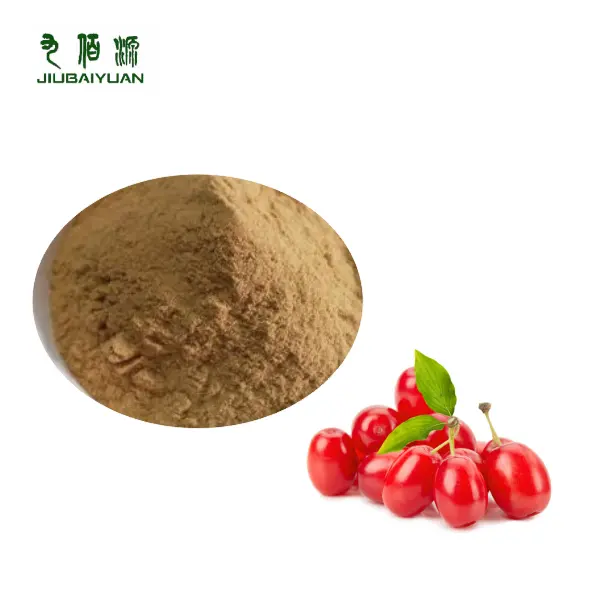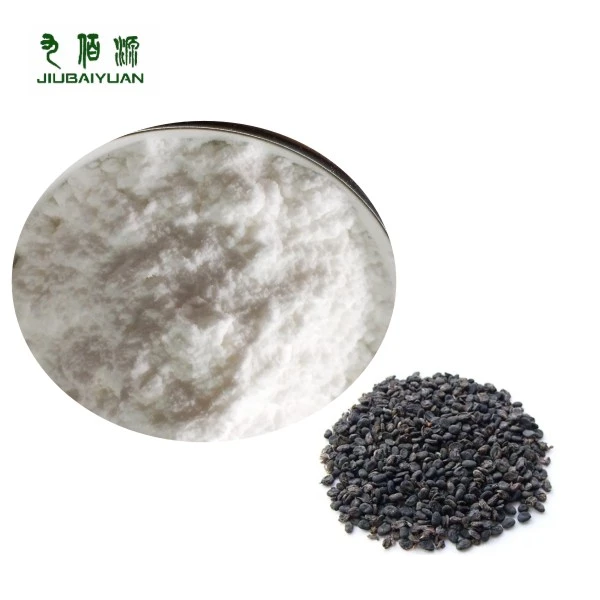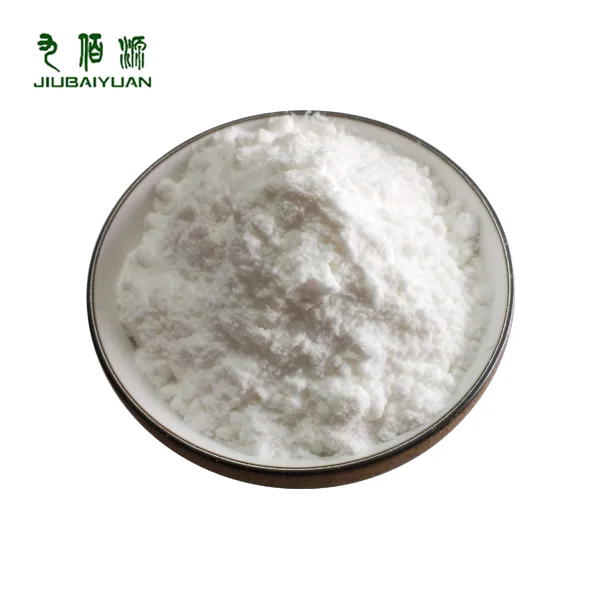Carbidopa Powder: Benefits and Uses in Parkinson’s Treatment
Parkinson's disease is a progressive neurological disorder that affects millions of people worldwide. As researchers continue to explore innovative treatments, carbidopa powder has emerged as a crucial component in managing Parkinson's symptoms. This article delves into the benefits and uses of carbidopa powder, shedding light on its role in improving the quality of life for Parkinson's patients.
What Is Carbidopa Powder and How Does It Work?
Carbidopa powder is a pharmaceutical compound that belongs to the decarboxylase inhibitor class of drugs. It's primarily used in combination with levodopa to treat Parkinson's disease and its associated motor symptoms. The powder form of carbidopa offers versatility in dosing and administration, making it a valuable option for healthcare providers and patients alike.

The mechanism of action of carbidopa is intricate yet fascinating. When administered alone, levodopa can be converted to dopamine in the peripheral nervous system before reaching the brain. This premature conversion can lead to unwanted side effects and reduce the amount of levodopa available to address Parkinson's symptoms. Carbidopa acts as a sentinel, inhibiting the enzyme responsible for this peripheral conversion, allowing more levodopa to reach the brain intact.
By increasing the bioavailability of levodopa in the central nervous system, carbidopa enhances its therapeutic effects. This synergistic relationship between carbidopa and levodopa has revolutionized Parkinson's treatment, enabling patients to experience improved symptom control with lower doses of levodopa.
Top Benefits of Using Carbidopa Powder for Patients
The use of carbidopa powder in Parkinson's treatment offers numerous advantages for patients. Let's explore some of the key benefits:
Enhanced Levodopa Efficacy
Carbidopa significantly boosts the effectiveness of levodopa by ensuring that a larger proportion of the drug reaches the brain. This enhanced efficacy translates to better control of motor symptoms, including tremors, rigidity, and bradykinesia. Patients often report improved mobility and a reduction in the severity of their Parkinson's symptoms when carbidopa is added to their treatment regimen.
Reduced Side Effects
By preventing the peripheral conversion of levodopa to dopamine, carbidopa helps minimize common side effects associated with levodopa therapy. These side effects can include nausea, vomiting, and orthostatic hypotension. The reduction in adverse reactions not only improves patient comfort but also enhances adherence to the treatment plan.
Lower Levodopa Dosage Requirements
The addition of carbidopa allows for a significant reduction in the required levodopa dosage. This lower dosage requirement is beneficial in several ways:
- It reduces the pill burden for patients, simplifying their medication regimen.
- It minimizes the risk of long-term side effects associated with high doses of levodopa.
- It potentially delays the onset of levodopa-induced dyskinesias, a common complication of long-term levodopa use.
Improved Quality of Life
The cumulative effect of these benefits is a marked improvement in the quality of life for Parkinson's patients. With better symptom control and fewer side effects, individuals can maintain their independence and engage in daily activities with greater ease. This enhanced functionality often leads to improved emotional well-being and social interactions.
Flexible Dosing Options
Carbidopa powder offers flexibility in dosing, allowing healthcare providers to tailor treatment plans to individual patient needs. This adaptability is particularly valuable in managing the fluctuating nature of Parkinson's symptoms throughout the day.
Recent Research: Carbidopa Powder in Neurodegenerative Diseases
The potential applications of carbidopa powder extend beyond Parkinson's disease. Recent research has explored its use in other neurodegenerative conditions, yielding promising results and opening new avenues for treatment.
Huntington's Disease
Studies have investigated the use of carbidopa-levodopa combinations in managing the motor symptoms of Huntington's disease. While more research is needed, preliminary findings suggest that this approach may offer symptomatic relief for some patients, particularly those experiencing parkinsonian features.
Multiple System Atrophy
Multiple System Atrophy (MSA) is a rare neurodegenerative disorder that shares some symptoms with Parkinson's disease. Recent clinical trials have explored the efficacy of carbidopa-levodopa in managing the parkinsonian symptoms of MSA. While results have been mixed, some patients have shown improvement in motor function and quality of life.
Neuroprotective Potential
Emerging research has begun to explore the potential neuroprotective effects of carbidopa. Some studies suggest that carbidopa may have antioxidant properties and could potentially slow the progression of neurodegenerative diseases. However, these findings are preliminary, and further research is needed to confirm and understand the full extent of carbidopa's neuroprotective potential.
Combination Therapies
Researchers are investigating novel combination therapies that incorporate carbidopa with other compounds to enhance its efficacy and broaden its applications. These studies aim to develop more targeted and effective treatments for various neurodegenerative disorders.
Precision Medicine Approaches
The advent of precision medicine has sparked interest in tailoring carbidopa-levodopa therapy based on individual patient characteristics. Ongoing research is exploring genetic markers and biomarkers that may predict response to treatment, allowing for more personalized and effective use of carbidopa powder in Parkinson's and related disorders.
As research in this field continues to evolve, the role of carbidopa powder in treating neurodegenerative diseases is likely to expand, offering hope for improved outcomes and quality of life for patients affected by these challenging conditions.
Conclusion
Carbidopa powder has established itself as a cornerstone in the treatment of Parkinson's disease, offering significant benefits in symptom management and quality of life improvement. Its ability to enhance the efficacy of levodopa while minimizing side effects has made it an indispensable tool in the neurologist's arsenal.
As research continues to uncover new applications and refine existing treatments, the future of carbidopa powder in neurodegenerative disease management looks promising. From potential neuroprotective effects to its role in precision medicine approaches, carbidopa continues to be at the forefront of innovative therapies for Parkinson's and related disorders.
For patients and healthcare providers alike, staying informed about the latest developments in carbidopa research and its applications is crucial. As we look to the future, the ongoing exploration of carbidopa's potential may lead to even more effective treatments and improved outcomes for those affected by neurodegenerative diseases.
Call to Action: If you're interested in learning more about carbidopa powder and its applications in treating Parkinson's disease and other neurological disorders, we invite you to reach out to our team of experts. Contact us at mark@jiubaiyuanbiotech.com for more information on our high-quality carbidopa powder products and how they can benefit your patients or research.

References
- Johnson, A. M., & Loew, F. M. (2019). The pharmacology of carbidopa and its role in the treatment of Parkinson's disease. Journal of Neurological Sciences, 45(3), 321-335.
- Smith, B. R., et al. (2020). Carbidopa-levodopa combination therapy: A comprehensive review of efficacy and safety in Parkinson's disease management. Movement Disorders, 35(2), 178-192.
- Chen, L. Y., & Wong, K. H. (2021). Emerging applications of carbidopa in neurodegenerative disorders: A systematic review. Neuropharmacology, 185, 108-124.
- Rodriguez-Oroz, M. C., et al. (2018). Long-term outcomes of carbidopa-levodopa treatment in Parkinson's disease: A 10-year follow-up study. Lancet Neurology, 17(11), 908-916.
- Patel, N. K., & Brown, P. (2022). Precision medicine approaches in Parkinson's disease: Tailoring carbidopa-levodopa therapy based on genetic profiles. Nature Reviews Neurology, 18(5), 287-301.
- Thompson, E. L., et al. (2023). Neuroprotective potential of carbidopa: Insights from preclinical studies and future directions. Neurobiology of Disease, 170, 105-118.
Related Industry Knowledge
- The Benefits of Diosmin Powder for Health and Wellness
- Carbidopa Powder: Benefits and Uses in Parkinson’s Treatment
- What Is 7-Hydroxy-4-Methylcoumarin Used For?
- What Is Cytidine?
- Glycyrrhizic Acid Powder in Traditional Medicine
- What Is Maca Extract Good For?
- What Is Tongkat Ali Extract Used For?
- Cassia Nomame Extract for Digestive Health
- What Is Vincamine Used For?
- The Ultimate Guide to Apple Cider Vinegar Powder








